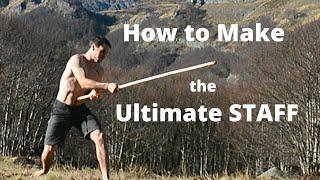You will still be eating last year's harvest when you will have to move it out to make room for new
Description
Bible Leviticus Chapter 26 Verse 10
◄ Leviticus 26:10 ►
Parallel Verses
New International Version
You will still be eating last year's harvest when you will have to move it out to make room for the new.
King James Bible
And ye shall eat old store, and bring forth the old because of the new.
Darby Bible Translation
And ye shall eat old store, and clear away the old because of the new.
World English Bible
You shall eat old store long kept, and you shall move out the old because of the new.
Young's Literal Translation
and ye have eaten old store, and the old because of the new ye bring out.
Leviticus 26:10 Parallel
Commentary
Clarke's Commentary on the Bible
Your threshing shall reach unto the vintage - According to Pliny, Hist. Nat., l. xviii., c. 18, the Egyptians reaped their barley six months, and their oats seven months, after seed time; for they sowed all their grain about the end of summer, when the overflowings of the Nile had ceased. It was nearly the same in Judaea: they sowed their corn and barley towards the end of autumn, and about the month of October; and they began their barley-harvest after the passover, about the middle of March; and in one month or six weeks after, about pentecost, they began that of their wheat. After their wheat-harvest their vintage commenced. Moses here leads the Hebrews to hope, if they continued faithful to God, that between their harvest and vintage, and between their vintage and seed-time, there should be no interval, so great should the abundance be; and these promises would appear to them the more impressive, as they had just now come out of a country where the inhabitants were obliged to remain for nearly three months shut up within their cities, because the Nile had then inundated the whole country. See Calmet. "This is a nervous and beautiful promise of such entire plenty of corn and wine, that before they could have reaped and threshed out their corn the vintage should be ready, and before they could have pressed out their wine it would be time to sow again. The Prophet Amos, Amos 9:13 expresses the same blessing in the same manner: The ploughman shall overtake the reaper, and the treader of grapes him who soweth seed." - Dodd.
Treasury of Scripture Knowledge
Leviticus 25:22 And you shall sow the eighth year, and eat yet of old fruit until the ninth year...
Joshua 5:11 And they did eat of the old corn of the land on the morrow after the passover, unleavened cakes, and parched corn in the selfsame day.
2 Kings 19:29 And this shall be a sign to you, You shall eat this year such things as grow of themselves...
Luke 12:17 And he thought within himself, saying, What shall I do, because I have no room where to bestow my fruits?
Library
Emancipated Slaves
I am the Lord your God, which brought you forth out of the land of Egypt, that ye should not be their bondmen; and I have broken the bands of your yoke, and made you go upright.'--LEV. xxvi. 13. The history of Israel is a parable and a prophecy as well as a history. The great central word of the New Testament has been drawn from it, viz. 'redemption,' i.e. a buying out of bondage. The Hebrew slaves in Egypt were 'delivered.' The deliverance made them a nation. God acquired them for Himself, and …
Alexander Maclaren—Expositions of Holy Scripture
Approaching Doom
The first years of Jehoiakim's reign were filled with warnings of approaching doom. The word of the Lord spoken by the prophets was about to be fulfilled. The Assyrian power to the northward, long supreme, was no longer to rule the nations. Egypt on the south, in whose power the king of Judah was vainly placing his trust, was soon to receive a decided check. All unexpectedly a new world power, the Babylonian Empire, was rising to the eastward and swiftly overshadowing all other nations. Within a …
Ellen Gould White—The Story of Prophets and Kings
Leviticus
The emphasis which modern criticism has very properly laid on the prophetic books and the prophetic element generally in the Old Testament, has had the effect of somewhat diverting popular attention from the priestly contributions to the literature and religion of Israel. From this neglect Leviticus has suffered most. Yet for many reasons it is worthy of close attention; it is the deliberate expression of the priestly mind of Israel at its best, and it thus forms a welcome foil to the unattractive …
John Edgar McFadyen—Introduction to the Old Testament
Cross References
Leviticus 25:22
While you plant during the eighth year, you will eat from the old crop and will continue to eat from it until the harvest of the ninth year comes in.
Joel 2:24
The threshing floors will be filled with grain; the vats will overflow with new wine and oil.









![#40 Master Walkthrough Year 2 Spring 1-3 [Harvest Moon: Back to Nature] [LONGPLAY]](https://no-mar.com/uploads/thumbs/939dd4aeb-1.jpg)











Comments